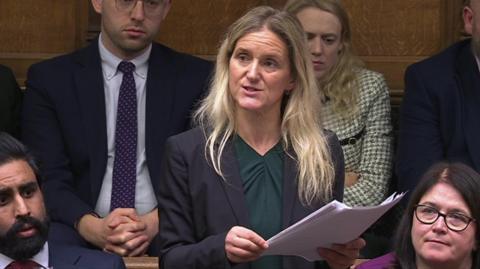Labour MP Kim Leadbeater, who put forward the bill, said the current law was "failing" and needed to change to give terminally ill people choice at the end of their life.
Opening the debate, the MP for Spen Valley said too many people were experiencing "heartbreaking" suffering as a result of the "cruel reality" of the status quo.
She gave examples of terminally ill people who had died "screaming for assistance" or taken their own lives because they were in uncontrollable pain.
Others who could afford it, she said, travelled to Switzerland or elsewhere for an assisted death, which she described as "often a deeply distressing and very lonely experience".
Opponents of the bill raised concerns that terminally ill people, particularly the elderly, disabled or vulnerable, could be pressurised into ending their own lives.
Leadbeater insisted her bill included "the most robust and strongest set of safeguards and protections in the world" and strict eligibility criteria.
To be eligible for assisted dying under the bill, someone must have the mental capacity to make a choice about ending their life and express a "clear, settled and informed" wish, free from coercion or pressure, at every stage of the process.
Two independent doctors and a High Court judge must be satisfied someone is eligible and has made their decision voluntarily.
However, Conservative MP Danny Kruger argued this process was inadequate as there would be no requirement for doctors to investigate or interview friends and family to determine whether someone had been pressurised.
He told the Commons the "bigger danger" was people putting pressure on themselves because they felt "a burden to others" or they could not access the treatment they needed.
Kruger urged MPs to vote against "a state suicide service" in order to protect vulnerable people from harm.
